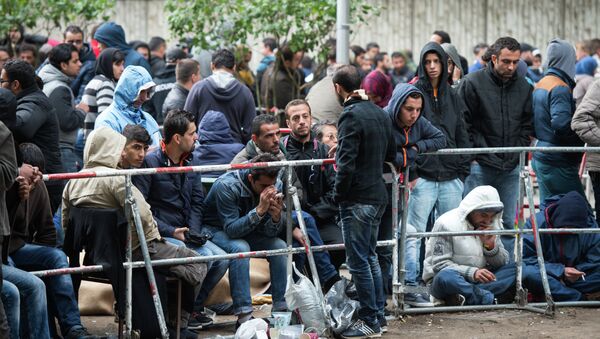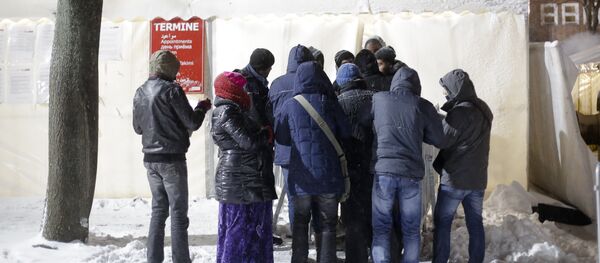Since 2015, when Germany welcomed hundreds of thousands of migrants and asylum seekers who were to be relocated across the country, the Germans have experienced the consequences of Chancellor Angela Merkel's so-called open doors policy.
One of such consequences was the mass sexual assaults and rapes of women by male migrants and asylum seekers during the New Year’s Eve celebrations in the city of Cologne in 2016, something which politicians attempted to conceal for days after the fact.
In March, German Interior Minister Horst Seehofer, a critic of Merkel’s migration policies, revealed plans to establish so-called anchor centers, where asylum seekers would be placed while their applications were being considered by the authorities. Anchor is an acronym for "arrival, decision, community distribution or repatriation."
Seehofer’s plans were revealed as part of his wider policy to speed up asylum procedures and ensure consistent deportations.
"We all know how difficult it is to deport people without protected status after they have been spread out across the country and put down roots in our cities and communities. In the future, the end of the asylum application will coincide with the start of the deportation procedure," Seehofer told German lawmakers.
Media have been reporting about high crime rates and mass protests at these anchor centers. For example, on May 2, hundreds of migrants in the German town of Ellwangen threatened security forces and forced police to release a man who was due to be deported to the Democratic Republic of the Congo.
On Monday, The Guardian newspaper reported, after visiting the Manching center, that those detained there were not allowed to lock their cells, cook their own food, or go to school until their asylum applications were considered, a process which lasts six months on average.
According to The Guardian, the German authorities managed to deport 1,000 individuals from the center in Manching since 2015, while another 2,500 others left voluntarily.
The German opposition parties have harshly criticized Seehofer’s new policies. In particular, the liberal Free Democratic Party (FDP) have called on the government to amend legislation and automatically repatriate all asylum seekers who had been accepted once the war in their region or country as over. The FDP insists "that should be the limit of asylum rights."
Seehofer's Decision Too Late
"This decision by the Minister of Interior comes four years too late. Germany should have never opened the borders to all migrants who wanted to come to our country, without any control. So doing, they have made the necessary expulsions very difficult," Jorg Meuthen, the spokesman of the right-wing Alternative for Germany (AfD) party, told Sputnik.
"It is pitiful to see the present attempts at controlling a situation that is clearly out of hand. Horst Seehofer’s initiative is merely a flimsy maneuver in the current electoral campaign in Bavaria and Hesse. The so-called anchor centers will not solve the problem, because many more new migrants are coming in every day, than Seehofer’s holding centers could ever send back," the AfD spokesman pointed out.
High Cost of Accepting Migrants
Steven Woolfe, the member of the European Parliament for the United Kingdom, recalled that in May 2016, the German government had admitted that they had estimated the cost of welcoming refugees at 93.6 billion euros ($110.3 billion) by 2020 for Germany alone.
"We speak of huge sums of money: more than 20 billion euros a year. Next, to it, you have the contribution of the EU, which has announced on its side a cost of 14.2 billion EUR for their migration budget. And let’s not forget the 4.4 billion euros promised or already given to Turkey by the EU, to avoid getting more migrants through the Aegean sea," Woolfe, who had also worked as the spokesperson on migration for the UK Independence Party, told Sputnik.
Woolfe recalled that since 2014, Germany had taken in some 2.3 million people. The politician called this number an enormous influx which would change the face of Germany and Europe forever.






